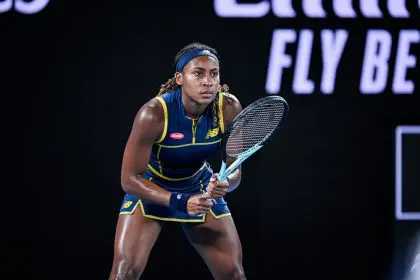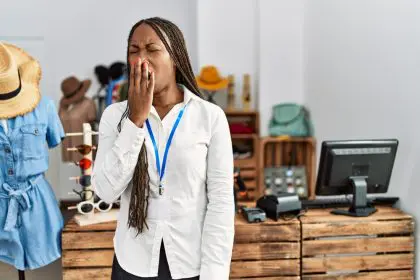 Dr. Kanika Bell is a clinical psychologist with a practice, a consulting firm who also is N assistant professor at Clark Atlanta University. She received a BA in psychology at Spelman College, an MS in psychology at Auburn University Montgomery and a Ph.D. in clinical psychology at Auburn University.
Dr. Kanika Bell is a clinical psychologist with a practice, a consulting firm who also is N assistant professor at Clark Atlanta University. She received a BA in psychology at Spelman College, an MS in psychology at Auburn University Montgomery and a Ph.D. in clinical psychology at Auburn University.
Her expertise involves working with individuals with severe psychological disorders. She works with individuals, couples, children and families with myriad emotional and behavioral health needs and provide trainings and workshops on various topics for organizations and businesses. Though clinically she has the propensity to service the more severe mental health population, her research interest and passion is healthy identity development in African American women. Her dissertation research was on the interrelated factors of the experience of racism and sexism, opinions about the self in terms of race and gender and psychological symptomatology for Black women. Recently, I sdat down with Dr. Bell to ask her about African American women in higher education and the imporatance of having a doctorate in clinical psychology.
When did you decide to become a university Professor and what were your main influences.
Auburn University requires doctoral students to take a course on the teaching of psychology taught by a very distinguished professor and scholar in the field of psychological pedagogy, Dr. William Buskist. Dr. Buskist actually became my dissertation chair and I had the opportunity to present and publish with him on the subject of teaching. However, it wasn’t until I was on postdoc at Emory that I decided to become a university professor in the traditional sense, instead of having a professorship that was mostly applied, practical work. I realized at Emory that African American students were not as often afforded the same types of opportunities to be involved in major grant-funded research projects, professional conventions and the preparation of manuscripts for publication. As such, I decided to turn down several very lucrative offers following my postdoc year, and try to secure a professorship at Clark Atlanta University.
How important was it for you to have mentors in your life both before and during college and what lessons did you learn from them that you share with your female students
I simply would be where I am without mentors, or elders, as I like to call them. I attended Spelman, so the message that the world is the Black woman’s oyster was omnipresent but the pressure of performing in a sea of overachieving Black women was also equally ubiquitous. It is because of Dr. Adrienne Bradford, then a professor at Clark Atlanta University, that I learned what the discipline of clinical psychology was, how to achieve my desired career, and from what internal space I could derive the confidence to navigate the very White, very male waters of academia. I would suggest to my female students to start NOW. It is never too early, nor too late to begin thinking about the kind of career they imagine themselves in. The next step is to find someone who is doing what they want to do, and/or who knows how to get to where they want to be…and get under that person’s wing until she gets tired of them!
How would you characterize the importance of the movement of women into academia, especially at HCBUs in a field like psychology?
It is clear that my presence is essential at an HBCU like Clark Atlanta University. I am likely the professor in the department of psychology that most students believe they most resemble. With all of my flaws, I represent possibility. Many HBCU students have rarely, if ever, seen a Black woman who received a Ph.D. in her 20s, and was a professor and business owner before age 30. I am but just one of the many African American women for whom choosing a career in academia has meant serving as a role model for college women.
As a woman, do you feel over looked at times by men in equal roles in the university setting?
Certainly. A professor in one of my graduate programs plainly stated that securing a professorship would be very difficult for me. He admitted that he openly shows preference to male applicants because female professor are “more of a liability” because “they” are more likely to leave, suffer burnout, take maternity leave or “follow a man to another state” and quit her position. I did not take him seriously until speaking with other women in academia and hearing the stories of being minimized on their campuses. Teaching at an HBCU provides more opportunity for women to be in positions of power I do believe. Female Deans are few and far between at most predominately-White institutions but are seen more regularly at HBCUs. However, the good-old-boys network is not totally defunct. Students routinely refer to me as Ms. Bell rather than Dr. Bell and the same students always refer to male professors without doctorates by “doctor.” It is often assumed that I am support staff rather than a professor around campus. I do think there is an interlocking issue of being female, being Black, and being perceived as much younger than my counterparts that is at play.
How would you encourage young women to follow in your footsteps?
I would encourage young women to immediately begin working to increase their discipline. The amount of time management, reading, writing, patience, volunteering of time and stick-to-itiveness required to complete a Ph.D. and place oneself in line for opportunities is generally underestimated and it begins during the undergraduate years. Ignoring announcements about free GRE classes, avoiding “difficult” professors, and refusing to be take unpaid internships or research or teaching assistantships are all ways that college women keep themselves from succeeding. It is also important to make positive relationships with professors and value their input, opinion and time. The recommendation letter is the minimum reward, the maximum reward for a great relationship with a mentor is boundless.
As you know, African American women are barely involved in the science and math at the level of higher education. Why is this and what do you think can be done to encourage them to pursue doctorates these fields?
I think a few issues are at hand. 1) Someone has passed some informal rule that math and science are “too hard.” Everything is hard until you press yourself to learn it and practice it. Riding a bike and tying your shoe was once “too hard” but your effort level was different then. You tried until you got it because you wanted to. 2) It is believed that math and science fields are not feminine. The assumedly female characteristics of nurturing and interpersonal are usually expected to manifest in careers with obvious applied components. However, young women are uniformed about how useful and meaningful careers in research to society as a whole. They also do not understand that the provision of services to the public requires continual proficiency in mathematics and science. More work must be done to de-mystify science and math and make it more accessible and desirable to young women as they plan their career trajectories.
-torrance stephens
















